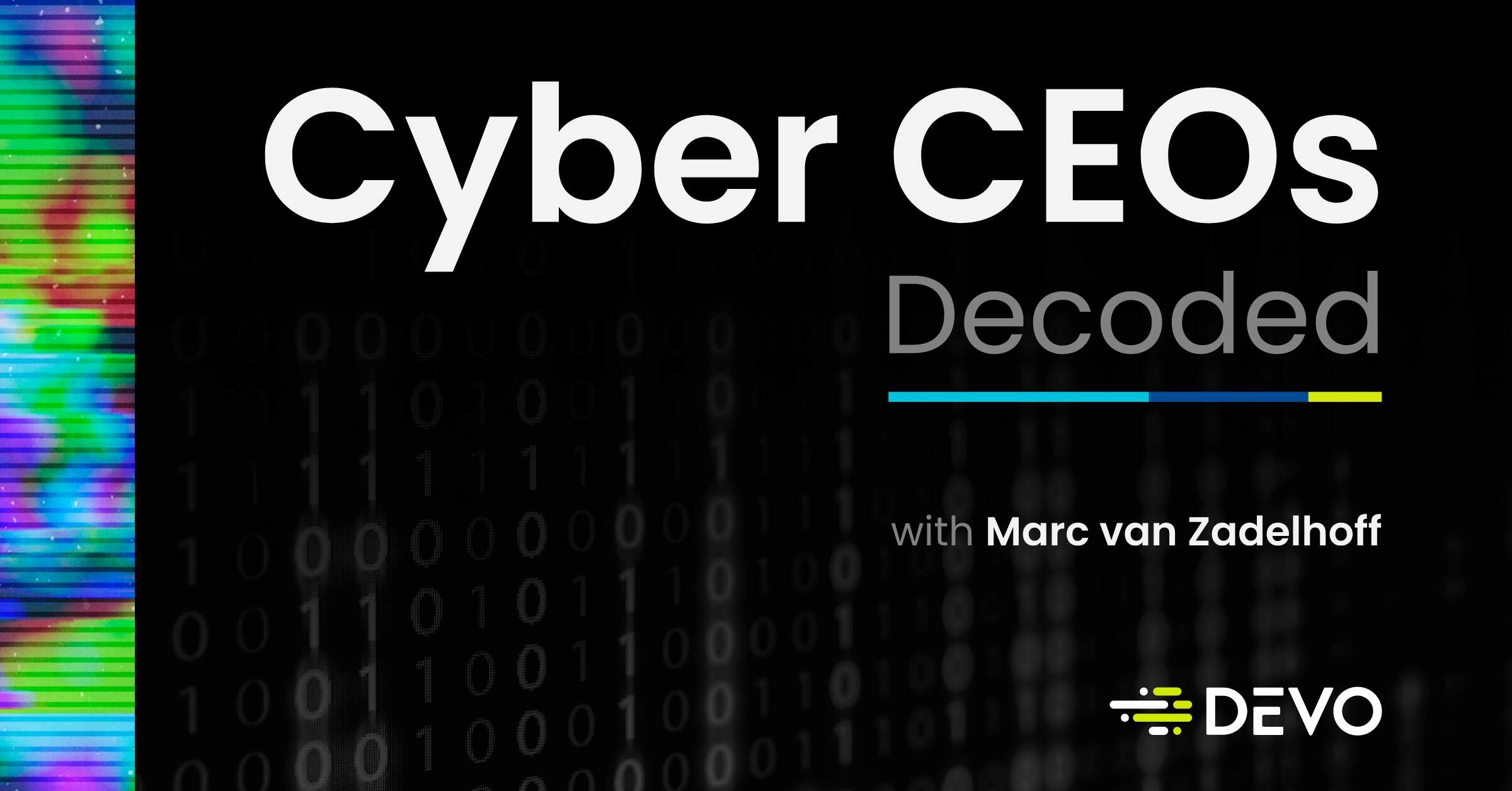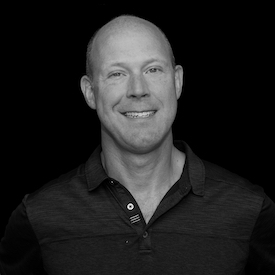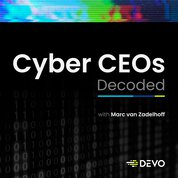
Cyber CEOs Decoded: The best moments of Season 1
Marc Van Zadelhoff: Welcome to "Cyber CEOs Decoded," where we speak with CEOs, from established security giants to up-and-coming disruptors, getting the inside track on what makes cybersecurity company tick. I'm your host, Marc van Zadelhoff, the CEO of Devo. Now, today we're sharing the best moments and most insightful drops of knowledge from our Season One guests. Each individual that joined us had a unique path to becoming a cyber CEO, and each also shared their point of view on leadership, growing a company, driving a corporate culture and so much more. I know I learned a lot from our guests this season, and I hope you did, too. So if there's one episode you want to listen to, it's this one. It's the recap. And without further ado, let's dive into the top moments.
Marc Van Zadelhoff: And today my guest is Brendan Hannigan, CEO and co-founder of Sonrai Security, enterprise partner at Polaris Partners and previously the GM of IBM Security and CEO of Q1 Labs.
Brendan Hannigan: There's certain philosophies and experience and wisdom we would hope to gain. I actually have some certain truths that I believe, which is, A, just to always have a great vision - big, audacious vision - really ambitious. That's what I feel is important. It pushes you every day to basically not get too squirreled away in some narrow segment. You really are taking a step back. And that's - I think that's really important. That's a philosophy. And the counter to that to everybody in our team is have a strategy. What's our strategy for the year, for the week, for the quarter? The second thing is just hire great people. And great people - it seems so obvious. The great people are people who have amazing intelligence and experience and also amazing culture and personality.
Marc Van Zadelhoff: Today, my guest is Patrick Morley, cybersecurity board member, adviser and former CEO of Carbon Black.
Patrick Morley: I had a no-***hole rule.
Marc Van Zadelhoff: Yeah. I remember you told me about this years ago. And I've always kept it in mind. It's so eloquently stated, it's stuck in my mind.
Patrick Morley: Yeah. And we've all seen - and by the way, just to be very clear, what does that mean? That means arrogance or hubris...
Marc Van Zadelhoff: Yeah.
Patrick Morley: ...Because we know that arrogance and hubris break the team. If we align on something as a team and then I walk out the room - out of the room and I do my own thing because I think I'm smarter than the rest of the team, then I break the team. And there's nothing that hurts the ability to build a great company, a great team, than by having an ***hole on the team. And we have all seen this in different companies where we've been at, where there'll be an individual or, in some cases, a team where no one wants to deal with them, with him or her or with that team.
Patrick Morley: And again, as I used to say kind of jokingly - but those teams also tend to grow. It's like rabbits. I mean, one day you have one person who's not a team player. And the next thing you know, the next quarter or two quarters, you got a whole team of people. And so you got to get that out. And the best way to do it is just to say it. We don't want that arrogance or that hubris in the company.
Marc Van Zadelhoff: Today, my guest is Mariano Nunez, CEO and co-founder of Onapsis, a leader in business application security.
Marc Van Zadelhoff: Sometimes the titles we carry as business leaders have too much weight. And as you said, you don't want everybody running around saying Mariano said...
Mariano Nunez: Right.
Marc Van Zadelhoff: ..Or Marc said, because maybe we're wrong.
Mariano Nunez: Right. That's right. Yeah.
Marc Van Zadelhoff: And there are better ideas that our customers or competitors have..
Mariano Nunez: Yeah.
Marc Van Zadelhoff: ...That we need to be doing.
Mariano Nunez: Absolutely. You have a lot of biases, right? You have a lot of biases. You have a lot of kind of assumptions built over the years that I think - but to your point, Marc, I think that's a great point because I think you have to be intentional and explicit about that transformation with the team because if you don't do it, to your point, people would kind of - naturally, as human beings, you'll kind of default to that. OK, the CEO is saying it, or the founder's saying I should do it. I think, like, trying to really empower the teams and be intentional about, guys, like, I'm not going to be part of the - like, happy to review, like, your recommendations after you talk with customers. But, like, use me as a kind of check, not as the one defining it, right?
Marc Van Zadelhoff: Very excited about my guest today. It's Wendy Thomas, the president and CEO of Secureworks.
Wendy Thomas: Any time you're on a certain path and all of a sudden, it's jarred loose, there's the speed with which you recognize it and sort of - OK - take a moment, but get over it and pivot mentally quickly to, all right, what are we going to do now? The faster that can happen, the better a business can perform and take advantage of things. But that's easier said than done. The group feels that.
Wendy Thomas: At the time, everybody in the company owned a piece of the company. They all knew what we were doing. We had talked about it for years as the goal. And all of a sudden, that's not the goal anymore. And so that change management and that rallying of the collective psychology is a really important part of leadership. And you have to do it with yourself before you can do it with the rest of the team.
Marc Van Zadeloff: Today my guest is Dror Davidoff, co-founder and CEO of Aqua Security. Dror, welcome to the show.
Dror Davidoff: I think responsible management, responsible leadership is something that pays off in the long term, right? So sometimes you look, and you want to do the shortcut, or you want to have a quick win. But if you really want to build a serious company for the long term, you have to take responsible hiring, spending, building. You have to make responsible decisions and really think about - we see so many companies that got themselves into very difficult situation just because they were tempted with high valuation and too much money, and now they find themselves in very difficult situation. So being responsible on front is not very rewarding short term, but it is very rewarding long term.
Marc Van Zadeloff: Yeah.
Dror Davidoff: So if you want to build a real business, long-term business, stick to responsible values.
Marc Van Zadeloff: Well, you remind me of my grandmother's favorite expression, which was being normal is crazy enough.
Dror Davidoff: (Laughter).
Marc Van Zadeloff: Today I am super stoked that my guest is Christopher Ahlberg, well-known entrepreneur in the cybersecurity community and co-founder and CEO of Recorded Future. What advice do you give entrepreneurs, and how do you how do you look at that now?
Christopher Ahlberg: Yeah. I know it's very tricky. You know, like you have to be. I think the first of all is to be careful about dishing out advice that you think is too clever because, you know, there are no silver bullets in this. I end up sort of usually, if it's something B2B-ish, being like, look, solve a very specific problem. That's what we - and we stumbled on that in my first company very successfully. It sort of was close to easy because we very - but Recorded Future took a while before we found this red intel thing. There was a little bit of wandering.
Christopher Ahlberg: You know, I always say Geoffrey Moore's "Crossing the Chasm" book, the first three chapters - just read it again; read it again. It's from 1995, and it's still 100% true. So this - but the basic story is just pick a very narrow problem. Find a set of people who have that problem. And then if there are anybody - any partners you can find along the way who can help you solve that problem, just solve that. And you'd rather have 20 extremely happy customers who are all thinking alike and a little bit of happiness over here, a little goodness over here. Just be very focused.
Marc Van Zadeloff: Today my guest is Peter McKay, a security veteran and the current CEO of Snyk. Peter, welcome to the show.
Peter Mckay: I think - I don't know, gulps not - I'd say, yeah, a fair amount of mistakes I've made over the years. Yeah. I mean you're moving incredibly fast. You're growing 150% year over year. You make - you know, you're hiring a lot of people. I mean, you don't get them all right. You know, you don't get all your decisions right. I mean, we've made some things that I would definitely take back, but we made a hell of a lot more right than we did wrong. And when we made a wrong decision, you know, we call each other out. Like, look it, we made a mistake. Let's move on, and let's figure it - well, let's not make it again and make sure that we acknowledge it and move on. And that's been our culture. Like, not everything's going to be - work. Not every decision was the right one, but it was based on the data you have at a particular point in time. And it's OK to make mistakes.
Marc Van Zadeloff: Today we have a very special episode to close out, an intense first season of "Cyber CEOs Decoded." And my guest is Amanda Renteria. She is the CEO of Code for America. You've, by definition, been really a forerunner in hiring for diversity at Code for America. What are some tips for cyber CEOs or any managers in the cyber space in how to bring diverse talent into the workforce?
Amanda Renteria: Be intentional. For us, we have from the very beginning. Our executive team is majority women and people of color. We look at metrics all the time - so every single - all staff, right? We have our metrics of, how are things looking? And over the course of time, we've really moved the needle. But I'll also say we talk a lot about lived experience. And the communities we're trying to reach, that mission orientation really speaks to. I love when I do my coffees, right? People are like either, this is the lived experience I have, or I was connected to it in this way. I worked on the front lines.
Amanda Renteria: And we tell those stories so that - not only that you're comfortable coming into code for America - and we're still always working on that - but you see yourself in not only our mission, but what it could be for someone else and it be better than your experience. That has been, really, pretty fantastic. We have apprenticeship programs and fellows and built some learning communities just almost organically so that we're bringing in a pipeline, right? We try and upskill people on the tech side. We put them in places where their lived experience can really benefit the way we are designing a program. And we work it through. And it's what we're teaching government to do too.
Marc Van Zadeloff: Thank you again to all our guests from Season One for sharing their wisdom with us. And thank you, listeners, for joining us. Season Two of "Cyber CEOs Decoded" will be coming soon.

